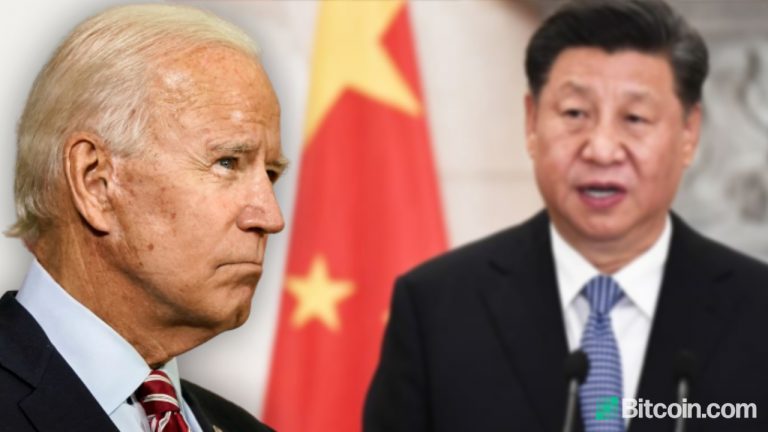US Government Concerned China’s Digital Yuan Could Threaten Dollar as the World’s Dominant Reserve Currency


The U.S. government is reportedly concerned that China’s digital yuan could threaten the U.S. dollar’s status as the world’s dominant reserve currency. Officials at the Treasury, State Department, Pentagon, and National Security Council are increasing their efforts to understand the implications of China’s central bank digital currency.
Digital Yuan Could Be a Threat to US Dollar
The U.S. government is reportedly increasing scrutiny of China’s digital yuan. Some government officials are concerned that the Chinese central bank digital currency “could kick off a long-term bid to topple the dollar as the world’s dominant reserve currency,” Bloomberg reported Sunday, citing people familiar with the matter.
Officials at the Treasury, State Department, Pentagon, and National Security Council are strengthening their efforts to understand the potential implications of China’s digital currency. Particularly, they want to understand how the digital yuan will be distributed and whether it could be used to evade U.S. sanctions.
China has been actively testing its digital currency backed by the central bank, People’s Bank of China (PBOC). Its rapid progress has renewed efforts in the U.S. to create a digital dollar, the publication conveyed, adding that the Biden administration is not currently planning to take any countermeasures against long-term threats from the digital yuan.
Meanwhile, the Fed is actively working on a digital dollar. Federal Reserve Chairman Jerome Powell said in February that the digital dollar is a “very high priority” project for the Fed. “We are looking carefully, very carefully at the question of whether we should issue a digital dollar … We are the world’s reserve currency, and we have the responsibility to get this right. We don’t need to be the first. We need to get it right,” Powell affirmed.
Various Federal Reserve banks are working on a digital dollar. Recently, the Federal Reserve Bank of Boston and the Massachusetts Institute of Technology (MIT) said they plan to unveil at least two digital dollar prototypes in the third quarter.
if (!window.GrowJs) { (function () { var s = document.createElement(‘script’); s.async = true; s.type = ‘text/javascript’; s.src = ‘https://bitcoinads.growadvertising.com/adserve/app’; var n = document.getElementsByTagName(“script”)[0]; n.parentNode.insertBefore(s, n); }()); } var GrowJs = GrowJs || {}; GrowJs.ads = GrowJs.ads || []; GrowJs.ads.push({ node: document.currentScript.parentElement, handler: function (node) { var banner = GrowJs.createBanner(node, 31, [300, 250], null, []); GrowJs.showBanner(banner.index); } });
Treasury Secretary Janet Yellen has also stressed the importance of researching the viability of a digital dollar. “It makes sense for central banks to be looking at” issuing a digital dollar, she said at a conference in February, noting that a digital dollar could help improve financial inclusion among low-income households.
According to a report on global economic trends published in March by the U.S. Director of National Intelligence, “Digital currencies are likely to gain wider acceptance during the next two decades as the number of central bank digital currencies increase.” It adds that “The extent to which privately issued digital currencies will provide a substitute for the use of national or regional fiat currencies, including the US dollar and the euro, to settle transactions will depend on the regulatory rules that are established.”
Do you think the digital yuan is a threat to the U.S. dollar as the world’s dominant reserve currency? Let us know in the comments section below.